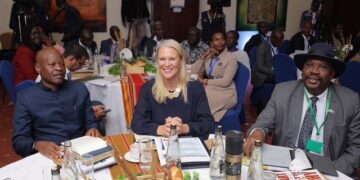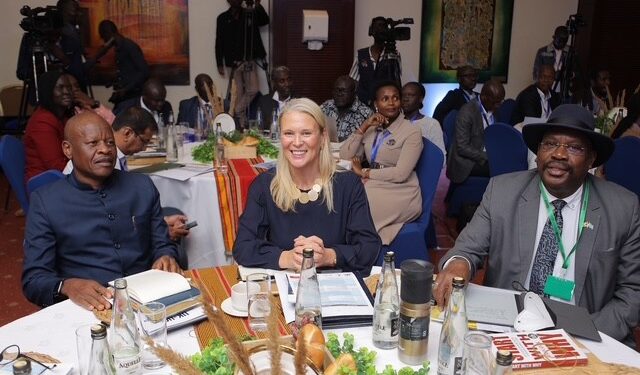Uganda and the United Kingdom have pledged to deepen cooperation in agriculture and agro-industrialisation following the inaugural UK-Uganda Agro-Industrialisation Forum, held in Kampala on Thursday.
The meeting brought together government officials, farmers, agribusiness leaders, and development partners to explore opportunities for boosting productivity, trade, exports, and climate resilience in Uganda’s agricultural sector.
Agro-industrialisation is a flagship pillar of Uganda’s National Development Plan, focused on expanding agricultural financing, strengthening value chains, investing in agro-industrial infrastructure, and improving access to technology. With agriculture employing the majority of Ugandans, the government sees this as central to achieving inclusive growth and positioning the country as a competitive agro-exporter.
The UK has long supported Uganda’s agriculture transformation agenda. UK firm Nexus Green has partnered with the Ministry of Water and Environment to deliver hundreds of solar-powered irrigation schemes, while the UK’s £39 million Climate Smart Jobs Programme is helping businesses, researchers, and financial institutions improve productivity and resilience in Northern Uganda. Through its Developing Countries Trading Scheme (DCTS), the UK has also made it easier for Ugandan goods to enter British markets tariff-free.
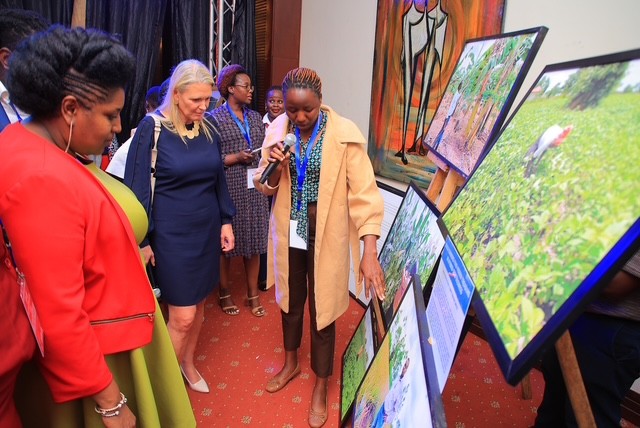
Strengthening UK-Uganda Collaboration
Speaking at the forum, British High Commissioner to Uganda H.E. Lisa Chesney reaffirmed the UK’s commitment to partnering with Uganda to accelerate sustainable development.
“The UK is committed to our partnership with Uganda and working together to accelerate sustainable development and mutually beneficial economic growth. And we know this goal cannot be realised without transforming agriculture as Uganda’s biggest employer,” she said.
She emphasized that collaboration between government, the private sector, and farmers is critical to unlocking Uganda’s “ten-fold growth ambitions.”
The High Commissioner highlighted four key objectives of the forum: awareness of UK agricultural technologies, connecting UK and Ugandan businesses, boosting exports via Uganda Airlines’ London route, and identifying solutions to trade barriers.
Uganda’s Policy Vision: Unlocking Agricultural Potential
Delivering the keynote address, Uganda’s Minister of State for Trade, Gen. Wilson Mbadi, underscored that agriculture remains the backbone of Uganda’s economy, employing over 70% of the workforce and contributing significantly to GDP. He said unlocking the sector’s full potential requires access to markets, affordable finance, and modern technology.
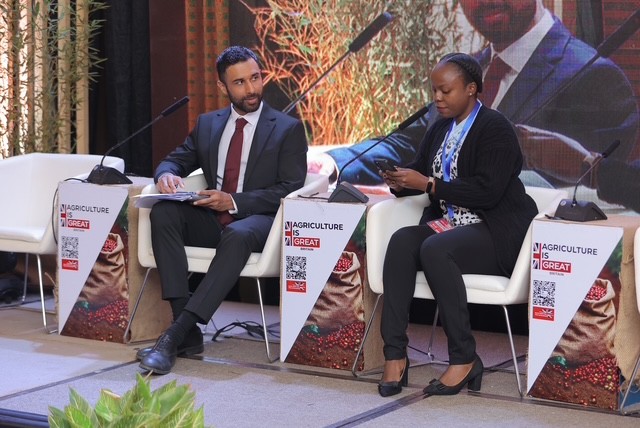
He outlined government priorities under the Agro-Industrialisation Programme of NDP IV, one of the four accelerators for Uganda’s Ten-Fold Growth Strategy. The programme seeks to reduce the trade deficit by adding value to raw materials, promoting export expansion, and substituting imports.
Gen. Mbadi revealed that Uganda’s agricultural exports already generate USD $2.2 billion annually, accounting for 40% of total merchandise exports. With stronger value addition, Uganda could expand this to USD $20 billion by 2040, translating into USD $51 billion to GDP.
Key government interventions include: expanding affordable credit for farmers and SMEs, supporting value addition for multi-input products like baby foods and nutrition products, scaling up fertilizers, quality seeds, and irrigation systems.
Operationalising the Warehouse Receipt System to improve aggregation, storage, standards, and market linkages, enforcing export rules for beef, horticulture, and other products and mainstreaming climate mitigation, renewable energy, and water access to support agro-processing.
On trade with the UK, Gen. Mbadi noted Uganda exported USD $28 million worth of goods to the UK in 2024, compared to USD $71 million in imports, with coffee, tea, fruits, vegetables, and flowers as the main exports. He emphasized the need to diversify and brand Ugandan products to gain a stronger foothold in the UK market.
“If we double the value of our products through agro-industrialisation, we can transform Uganda into a USD $20 billion agro-export economy by 2040. That is the vision we are working towards with partners like the UK,” he said.
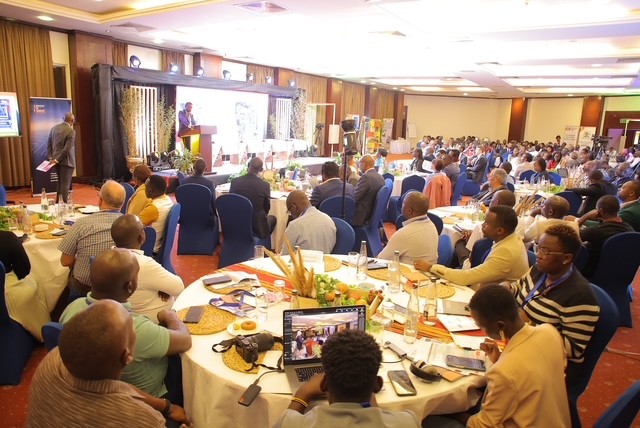
He further praised the UK’s support in trade facilitation through TradeMark Africa, which has reduced border crossing times by 70% via one-stop border posts, and investments in digital trade systems, customs modernization, and the British Chamber of Commerce in Uganda.
Shared Opportunities
Gen. Mbadi highlighted priority value chains for investment—coffee, maize, beef, milk, cotton, tea, fish, cocoa, cassava, and palm oil—where UK investors could collaborate in agro-industrial parks and export processing zones (EPZs). He also pointed to opportunities in technology transfer, capacity building, and research collaboration.
He emphasized the strategic importance of Uganda Airlines’ direct flights to London, saying they will “ease logistical barriers for high-value exports like fish, coffee, fruits, and vegetables, while also attracting UK investors and tourists.”
With agriculture seen as the backbone of Uganda’s economy and the UK reaffirming its role as a strategic partner, the forum set the stage for stronger ties in trade, investment, and innovation. Participants expressed optimism that by combining UK technologies and financing with Uganda’s vast agricultural potential, the two countries can unlock new opportunities for farmers and exporters alike—while building resilience to climate change.
The day-long event concluded with networking, where government leaders, agribusiness executives, and farmers discussed concrete next steps to translate the forum’s commitments into action.
